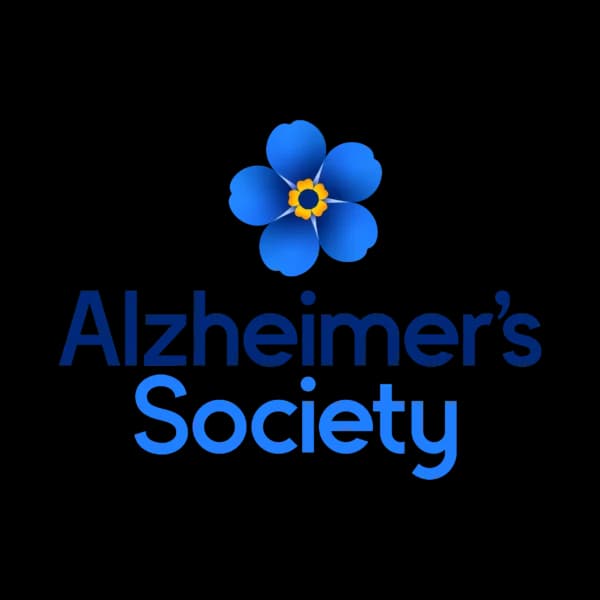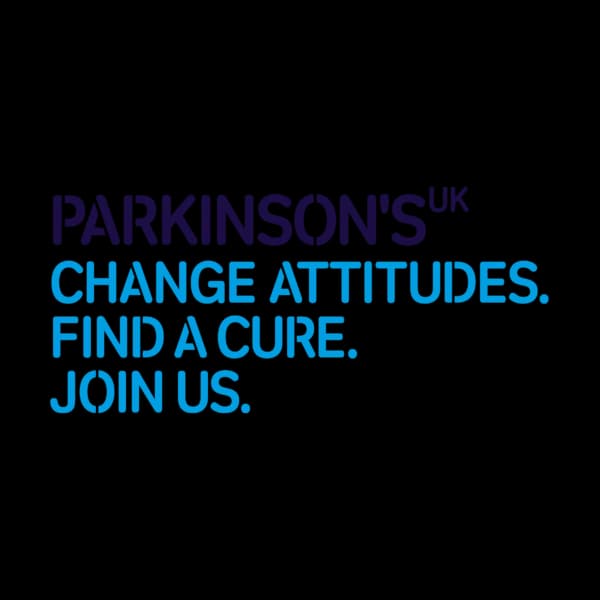Lung cancer care at home
Experienced, knowledgeable lung cancer care at home from trained Care Professionals who can help anyone living with lung cancer to stay as healthy and comfortable as possible.
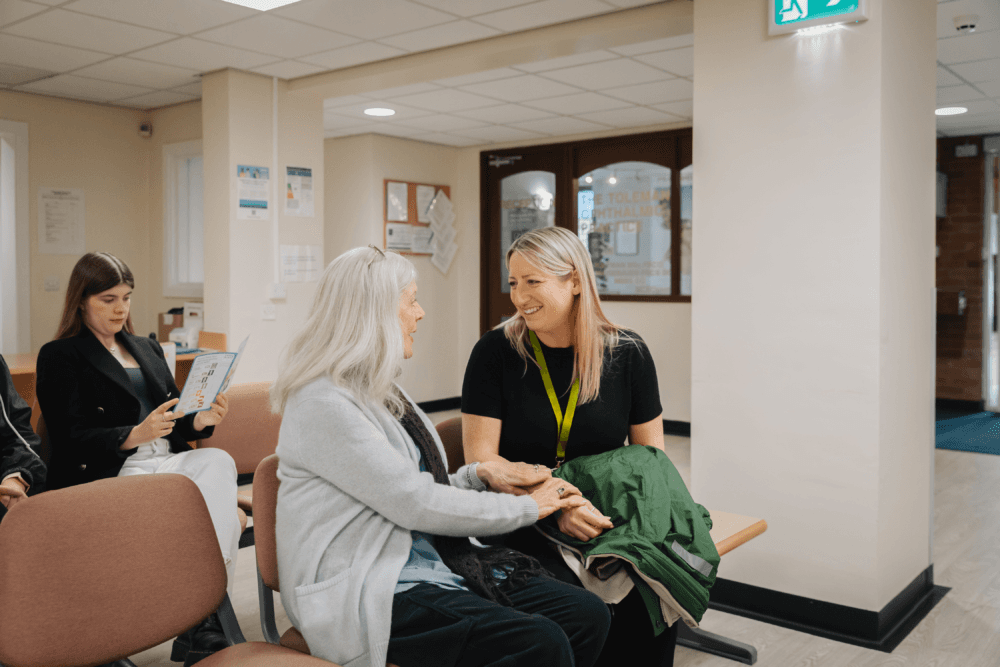
What is lung cancer care?
Lung cancer is thought to be the third most common type of cancer in the UK, and rates are highest in those aged 80-84. This condition causes a number of symptoms, and whether or not they are undergoing treatment, people with lung cancer often need support to help them remain comfortable and independent at home so they can continue with their daily activities.
Lung cancer care might involve:
- Support to stop smoking
- Mobility assistance to get around if they have physical limitations or breathlessness
- Help treating and managing symptoms like coughing, fatigue and loss of appetite
- Support getting to and from treatment appointments such as chemotherapy
- Experienced palliative care to manage pain
Post-operative support if they have a lung removed
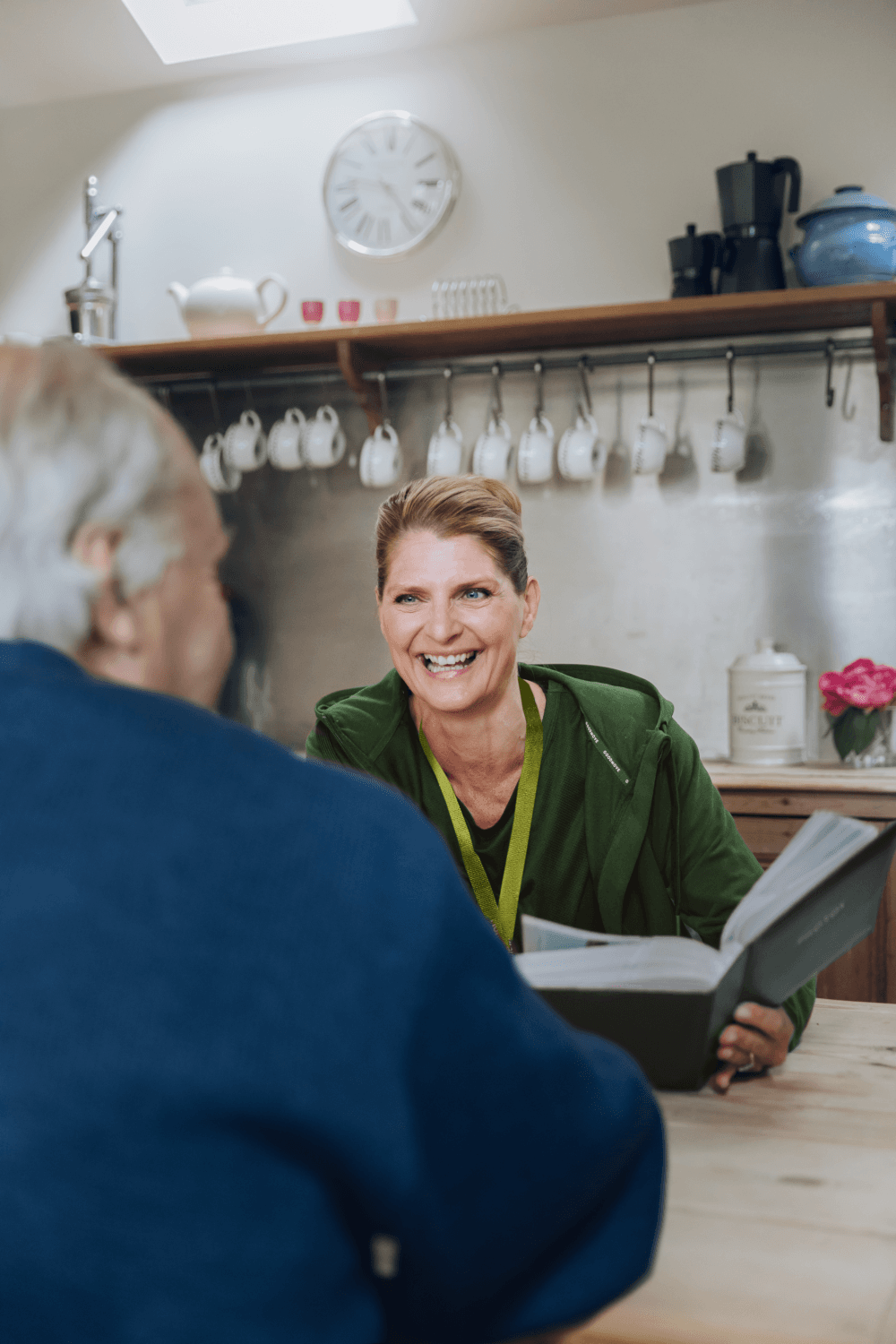
Why is lung cancer care at home helpful for older adults?
Studies show cancer care at home can result in fewer hospitalisations, and for any form of cancer, receiving treatment and care at home is often preferable so people can continue to engage in their usual activities, spend time with family, and maintain a positive mindset while they work through the treatment protocols, or continue to live comfortably without treatment.
Lung cancer care at home could take over potentially fatiguing tasks like personal care, housekeeping, cooking or walking a dog so you can conserve your energy. This type of care can also provide companionship and a sense of safety for those who experience breathlessness, travel assistance for attending chemotherapy appointments, help administering medications, and more.
Do I need lung cancer care?
Your doctor can advise on whether or not you need additional help at home for complex health challenges like lung cancer, and put you in touch with services provided by your local council. Home care agencies like Home Instead can also help by providing flexible, specialist services that support those with cancer during treatment, symptom management, or palliative care.
While some people have mild symptoms and can manage on their own, doing this or relying on untrained family caregivers could result in a reduced quality of life and missed signs of symptom progression, so having professional care in place can help avoid this.
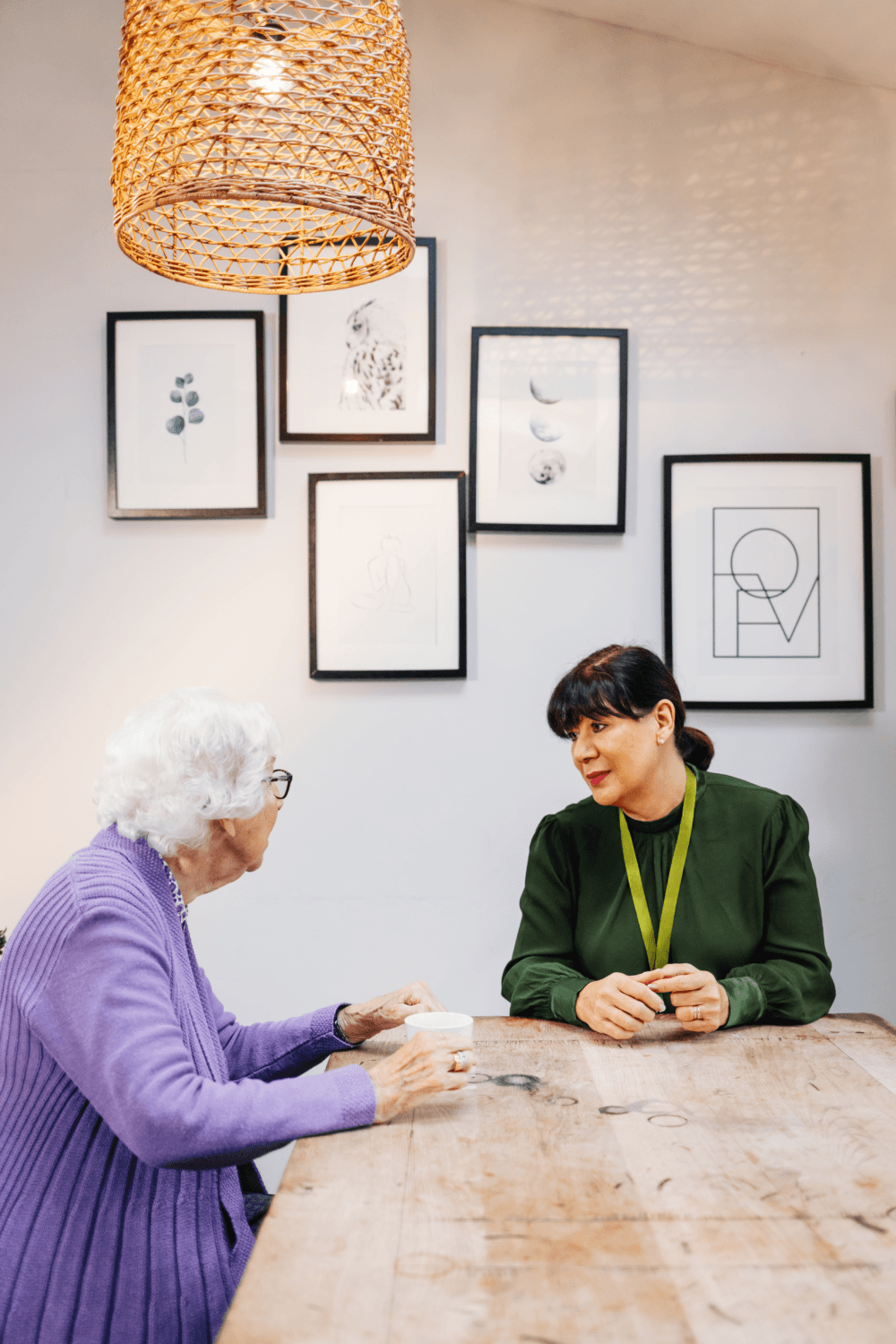
How can we help?
We've helped thousands of families to stay safe, comfortable and happy at home. Whatever situation you're facing, or whatever the question is, Home Instead is here to help.
Are you in need of a little guidance right away?
03300 583450Other non-care-related enquiries
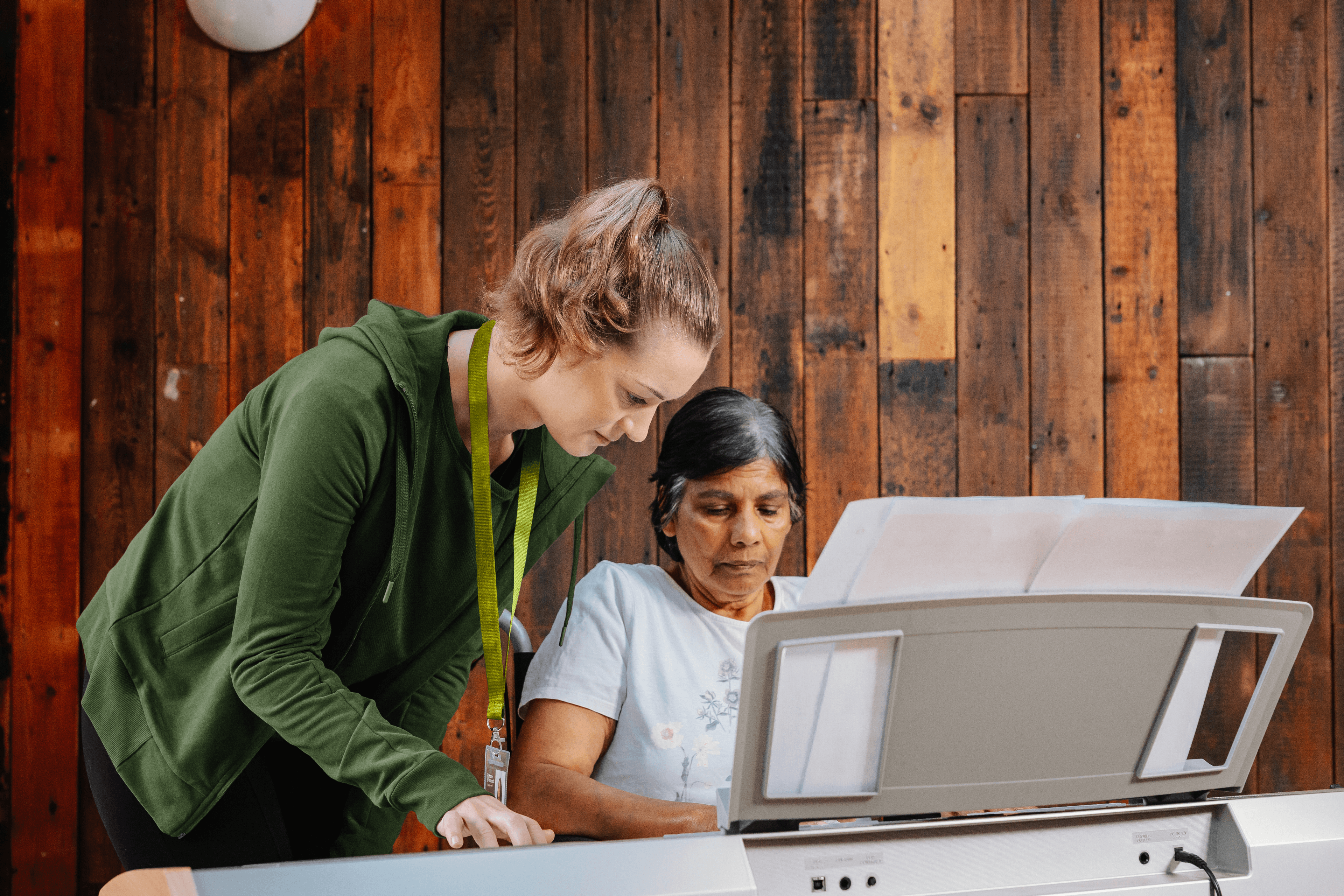
This is a company whose staff really do care on a personal level and who are client orientated, providing stimulative activities, conversation and going the extra mile to help client and family.
Eileen, Client
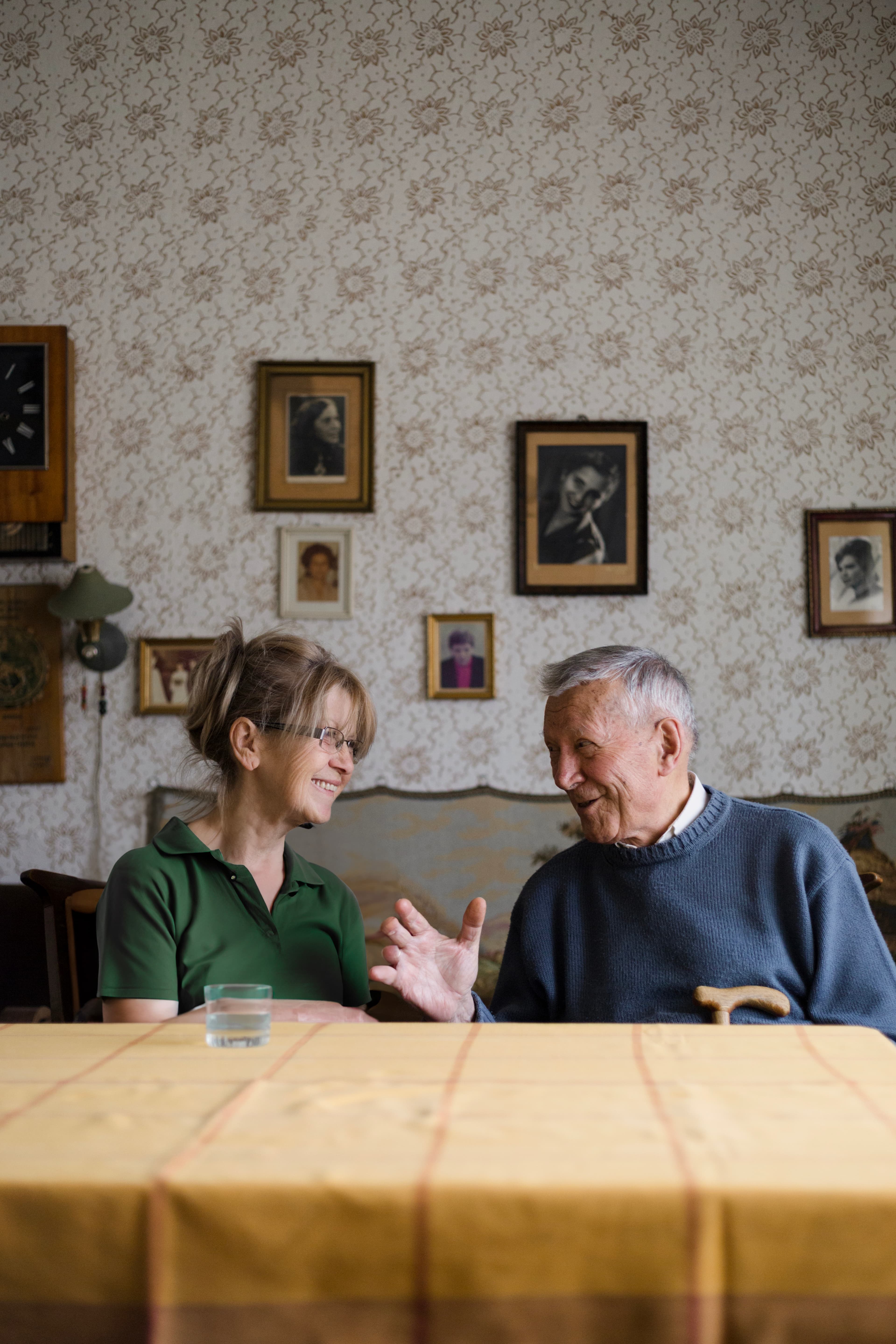
My mum receives excellent care from Home Instead. They are all very caring, friendly, organised and help my mum to feel happy, safe and well cared for in her own home. The carers are very good at communicating with the office and in turn the office are great at communicating any concerns to me as situations arise.
Jane, Client's Family
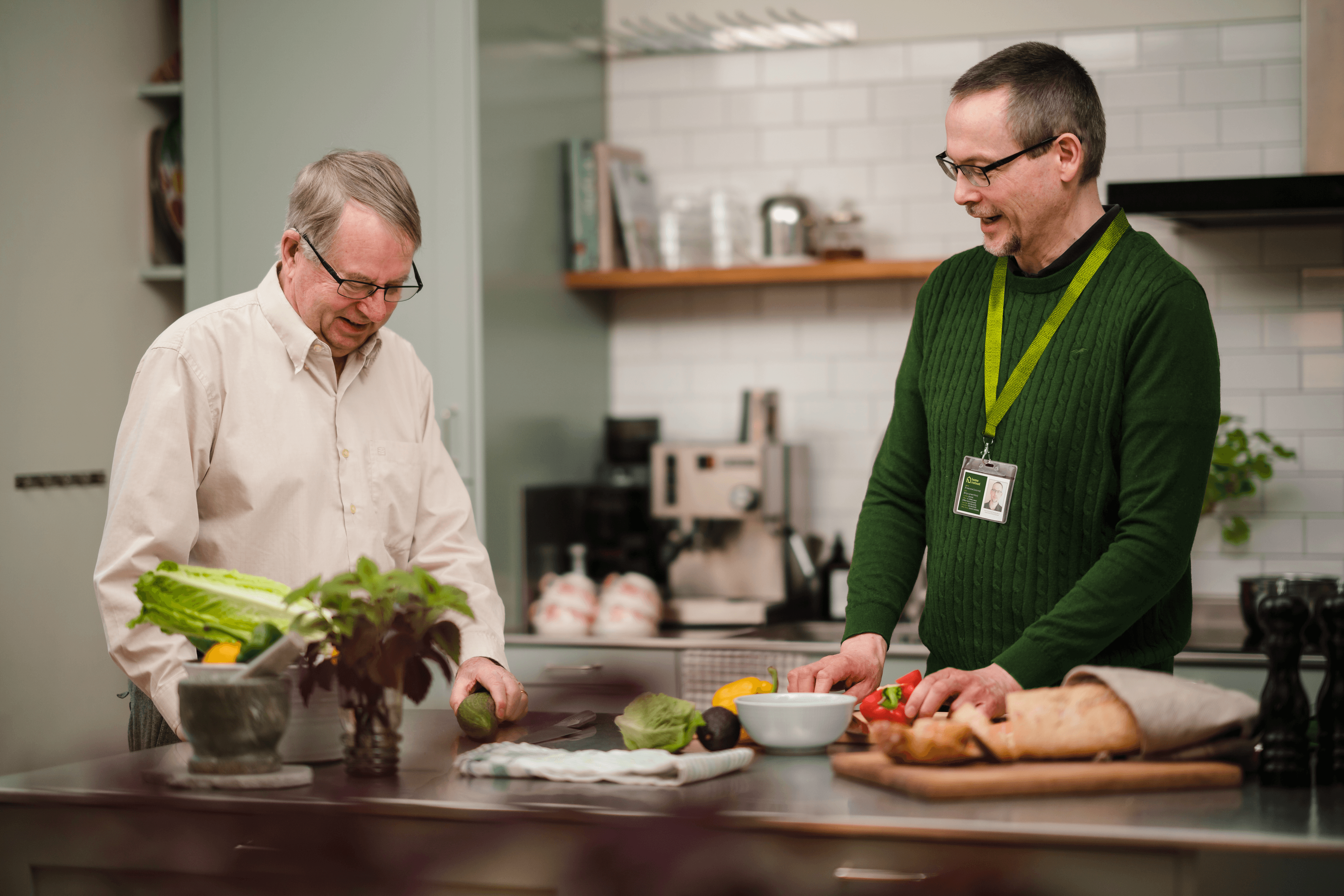
From day one Home Instead has given us a first-class professional caring service. Office staff and carers very helpful and understanding.
Paul and Sandra, Clients
Get in touch today to
see how we can help
Get in touch How to get started arranging lung cancer care
Your doctor may recommend a Care Needs Assessment to determine what your needs may be at home after an operation or during cancer treatment. Or, you can reach out to your local council to learn more about arranging care, or get in touch with a care agency.
Care can begin with a call to your local Home Instead office where we discuss your needs, arrange an assessment, and pair you with a Care Professional who matches your personality and interests, and who has experience and knowledge of how best to help people with lung cancer.
Our Care Professionals offer bespoke, flexible care that enables you to confidently undergo treatment or manage symptoms in the comfort and familiarity of your own home, surrounded by family and friends.
Why Home Instead?
Lung cancer can lead to a number of complicated health needs and treatment types, so having expert, dedicated care at home is extremely helpful to avoid unnecessary hospital visits, stay surrounded by people who care, and maintain regular routines as much as possible. At Home Instead, we can provide the care you need to achieve this.
We are proudly rated 9.6 on Homecare.co.uk, with many of our locations also rated “outstanding” by the Care Quality Commission (CQC), so you can rest assured your journey with lung cancer will be supported by experienced professionals with the necessary skills and specialist knowledge, and your best interests in mind.
FAQs
- How can professional home care services help with managing elderly lung cancer patients at home?
Professional care services like Home Instead can offer personalised support tailored to the needs of elderly lung cancer patients. Our Care Professionals can assist with daily tasks such as medication reminders, meal preparation, and mobility support, ensuring the patient is comfortable and well-cared for. They can also help manage medical equipment, like oxygen therapy, and create a safe home environment, reducing the pressure on family members.
- What symptoms should I be monitoring, and how can home care professionals assist with this?
Symptoms such as shortness of breath, coughing, fatigue, and chest discomfort are common. Our Care Professionals are trained to observe these changes and keep detailed records to share with healthcare teams. They can also provide guidance on managing symptoms, ensuring early intervention when required, and supporting the patient through palliative care measures.
- How do home care services emotionally support elderly lung cancer patients?
Trained Care Professionals focus on compassionate care, providing companionship and emotional reassurance. They engage patients in relaxing and enjoyable activities, creating a sense of normalcy. By being a friendly presence, they can help reduce feelings of isolation or anxiety, offering much-needed emotional support during difficult times.
- Can home care services help with respite for family caregivers?
Yes, professional home care is an excellent option for family carers needing respite. Whether for a few hours or regular scheduled support, our Care Professionals can step in, ensuring your loved one’s needs are met while you take time to rest and recharge. This is vital for maintaining your own health and well-being as a caregiver.
- What makes home care services better equipped to handle medical needs compared to family members?
Our Care Professionals are experienced in dealing with the specific needs of elderly patients with complex conditions like lung cancer. They can help manage medical equipment, ensure medications are taken correctly, and respond quickly to changing health conditions or emergencies. Their training also ensures they’re up to date with best practices for care, providing families with peace of mind.
